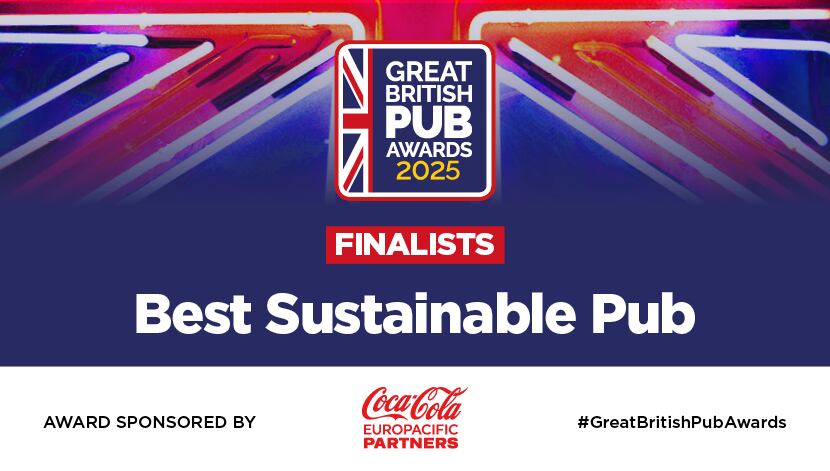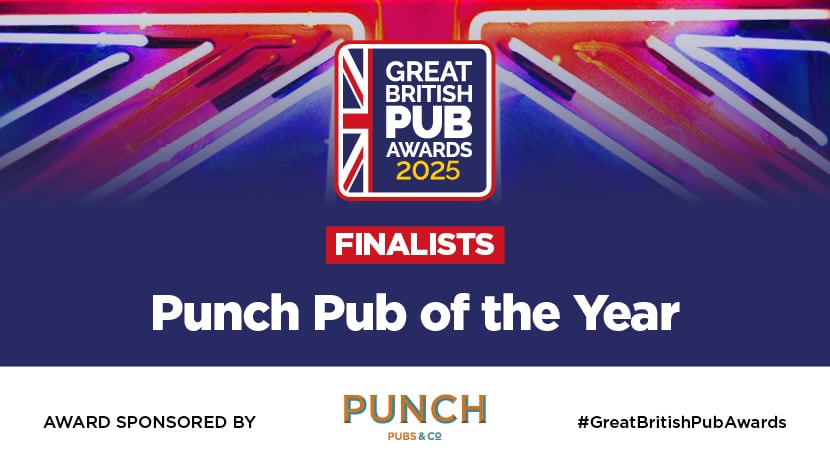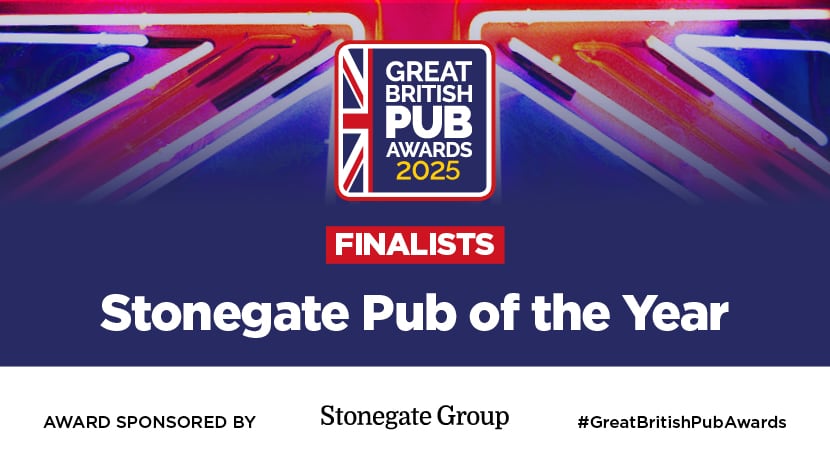The Bat & Ball, Breamore, Hampshire
An on-site hydroponics farm growing a range of tasty produce for the pubs’ menu, including herbs, vegetables, salads and fruit, is at the heart of the pub’s sustainability focus.
There is continual development by publican Greg Watts of the ‘HydroGrange’ farm (including a new self-watering system), which is always open for customers to take a look or be given a tour around. The pub also grows its own flowers through hydroponics, with its stunning planting outside the pub helping to give it great kerb appeal.
Greg aims to inspire other licensees to embrace hydroponics (the cultivation of plants without soil) as a sustainable and cost-reducing concept for growing some of their own produce.
Among other initiatives are composting all food waste from the kitchen to use on the farm (which all team members work on) and introducing Heineken’s greener cellar technology SmartDispense.
Suppliers for this charming country pub, which is a Star Pubs’ & Bars lease, are also selected for their sustainability credentials, such as Downton Distillery gin who supply in refill bags.
The Pig’s Ear, Chelsea, London
This characterful, countryside style pub in the city has been part of the Local & Wild group since last May. The group was set up by the Gladwin brothers, to champion British, local ingredients, including whole animal butchery.
Much of the produce used on the menu is sourced from it its regenerative farm in West Sussex, whilst the heroes of the wine list include delicious wines from the family vineyard in Nutbourne, West Sussex.
Team members are trained to reduce waste and creativity is encouraged around preservation techniques across the kitchen and bar, such as creating wild garlic vodka for Bloody Mary’s.
The pub’s passionate bar team craft cocktails from seasonal, foraged ingredients, kitchen offcuts, homemade bitters and predominantly British produced spirits.
Daily operations are underpinned by the teams’ sustainability training, with reducing waste, including energy, a key ongoing focus driven through a sustainability champion.
The George, Castleton, Hope Valley, Derbyshire
Publicans John and Vicky Judson and their team put sustainability at the heart of everything they do at this characterful Peak District pub.
They embrace a wide range of sustainability focused processes and initiatives, including investing in their waste management Ecobot ‘Greedy George’, with the machine’s output used as an additive for compost for the pub’s extensive kitchen garden and ‘No Dig’ allotment, located nearby, which grows a variety of tasty produce for the pubs’ menu. The garden also has its own wormery and bee hives.
Other impactful initiatives include cultivating seeds in juice cartons, using waste beer/ cider from line cleaning to make ice cream, utilising beer line cleaning chemicals for urinal cleaning and using Snoap in the toilets.
Lip and beard balm, using ingredients from the kitchen garden, and dishes crafted from recycled glass and wood are among items crafted by John at his solar-powered workshop, which are then sold at this Wells & Co tenancy.
The Judsons encourage local involvement in its sustainability work through its community swap shop, where produce grown by locals is used on the menu and swapped for pints etc.
The Loch & Tyne, Old Windsor, Berkshire
A sustainability focus is at the core of the Adam Handling Collection, of which The Loch & Tyne was its first pub, with the groups’ tagline ‘Sustainable British Luxury’.
Opened in 2022 under chef proprietor Steven Kerr, who has worked alongside Handling for many years, the pub has its own kitchen garden, all-electric kitchen (with solar panels to help reduce the inn’s energy consumption) and embedded team culture around waste reduction.
There is a big focus on foraging, using ingredients in their entirety and on showcasing sustainable meats, such as venison. Fruit and veg trimmings are used to add value to the pubs’ offer too, including for making purées or fermented or creative cocktail ingredients.
Any unused biodegradable waste from the kitchen is composted, there is a recycled water system and dried flowers and living plants/herbs are used to decorate the pub. While overnight guests are offered made in-house bath salts crafted from ingredients grown in the garden.
The pub works closely with English suppliers for its drinks offer too and cocktails are crafted with garden ingredients, such as the ‘Waste Mint Stem Mojito’ and ‘Garden Spritz’.
The Bull at Charlbury, Chipping Norton, Oxfordshire
The Bull, a restored 16th century pub in the heart of the Cotswolds, is part of The Public House Group, and blends historic charm with modern flair.
It was founded with sustainability at the core of its identity, around the belief that a great pub should nourish not only its guests but also its environment and community.
The pub, which also has ten bedrooms, works closely with small-scale local farms for sourcing its produce, including from its own nearby regenerative farm, which enables it to feature ingredients that have been harvested just hours before. its chefs also use a full carcass butchery model. Team members get hands on with the farm which helps inspire their passion for how they cook, serve and communicate about dishes to customers.
A circular composting system, in collaboration with sustainable wood distillery Whittle and Flame, sees the pub’s food scraps combined with sawdust to create nutrient-rich compost to feed the soil that the pubs’ produce is grown in on local farms.
The Bull’s bar stocks only local British beers, seasonal cocktails and mainly organic and sustainably produced wines.
The Fox & Hounds, Barley, Hertfordshire
Sustainability for the team at The Fox & Hounds is a way of thinking, cooking and running this 17th century country pub.
Seasonal and local produce is embraced on menus, which are driven by head chef/co-owner Brett Barnes, including ingredients grown in its on-site greenhouse and through an exclusive partnership with local Cokenach Estate, where the pubs’ chefs help plan and pick some of the veg served.
Chefs reduce waste through root-to-leaf and nose-to-tail cooking, with dishes including its whole roast suckling pig experience and beef brisket burger.
Waste reduction is also a key focus of the bar, led by GM Ricky Williams, who has swapped bottled citrus for the pub’s own ‘super juice’ (which uses the whole citrus fruit) and its house wines from bottles to bag in box. Lots of British produced drinks are stocked, including beers from local breweries, English wines and cocktails crafted and garnished with ingredients from the garden. House gin Foxgrove is made with botanicals grown in its herb garden.




